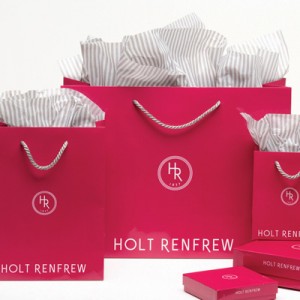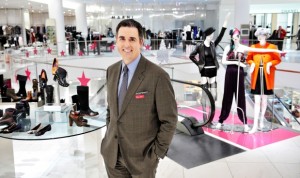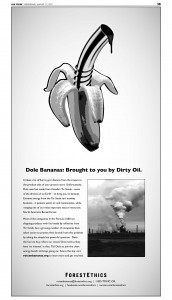How could Holt Renfrew, a store selling high end clothing and accessories that not everyone can afford last 174 years in the retail business? The answer is simple, brand. When you see someone walking down the street holding a magenta bag with the words HOLT RENFREW scrawled across, you immediately think that person is carrying an expensive, good quality, luxury product.
Jenny Lee quotes Mark Derbyshire, president of Holt Renfrew in the Vancouver Sun, describes retail as a theatre saying, “It should be an experience. I believe you come to Holt Renfrew to feel good.” That’s why the store offers incentives to sale associates such as a trip to Vegas if they meet sale targets. This is a great way for management to prompt their team to create special relationships with customers that will leave shoppers wanting to go back to the fun and positive atmosphere of Holts. Furthermore, the store offers entertainment on weekends which encourages shoppers to make Holt Renfrew a part of their weekend routine. Holt Renfrew has also begun a brilliant strategy of receiving smaller shipments of products more frequently. Therefore, customers feel the need to visit the store more often to check on new stock that may not have been there a few days ago and that they can purchase immediately before it sells out.



